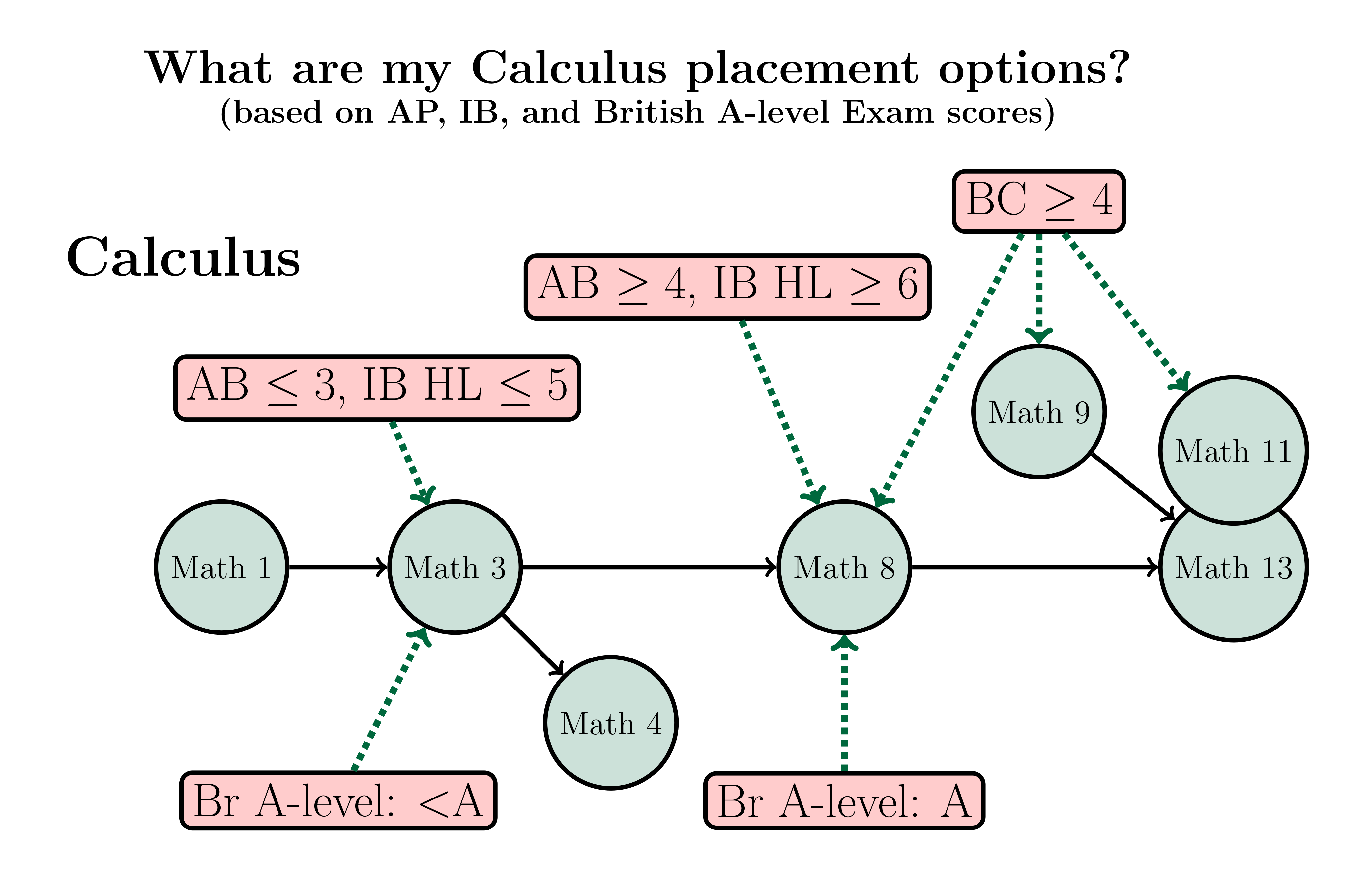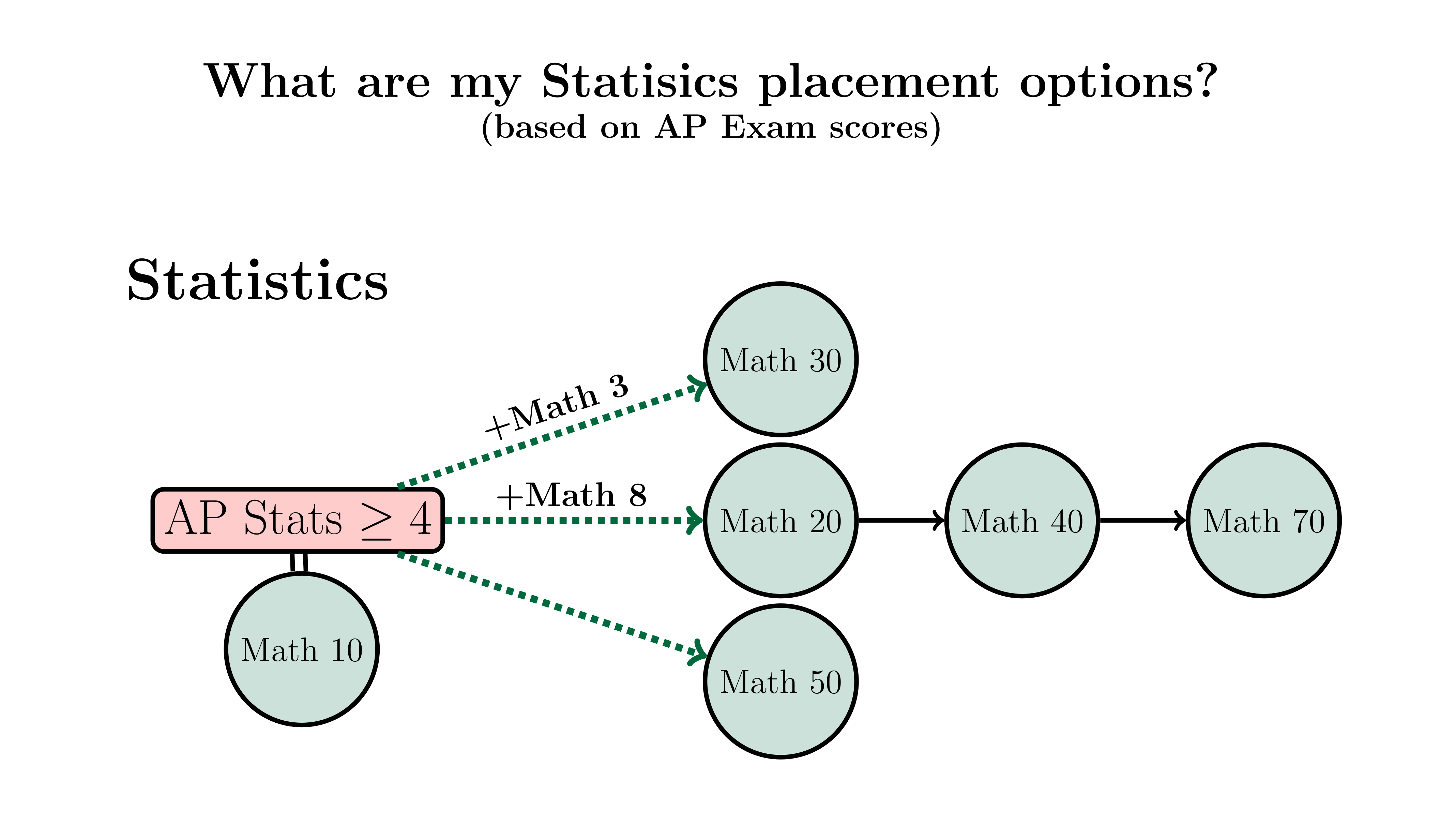Nc Early Mathematics Placement Testing 2013 2014 Answers
Related Links:
Suggested courses for first-year students
Frequently asked questions
Obtaining Appropriate Placement and Credit in Mathematics
- Every entering student — whether they intend to take any mathematics or not — receives a math placement. You should know your placement, its significance, as well as your options to change it.
- Obtaining an appropriate math placement concerns not only those who plan on taking more math or those who want credit for material already mastered; it is equally important to those who think they will never need or take any more mathematics.
- Often, students who have taken some calculus in high school arrive with no plans to take math, and then later decide to add a minor which has a calculus prerequisite, and because they have not secured an accurate placement upon matriculation, are forced to rearrange their crowded academic schedules to accommodate the requirement.
- While every student receives a default placement, advanced placement and credit can be achieved in many ways including standardized AP, IB-HL, and British-based A-level exams, as well as (locally written) placement exams which you can take online over the summer.
- Local placement exams are available online to matriculated students starting in early August, and are taken only by those whose have either not taken a standardized placement exam, or wish to improve their current (default) placement. Placements exams must be taken by noon on September 8, 2021 to ensure correct placement before enrolling in fall-term classes. You will receive an email in July/August providing more details.
- Since you are allowed to take a placement exam only once, you are strongly urged to read the relevant parts of this and related web pages.
The Dartmouth Mathematics Placement System will:
- allow you to determine the appropriate starting point in mathematics (should you choose to take math at Dartmouth),
- allow you to gain credit and/or advanced placement for mathematics you mastered before coming to Dartmouth,
- introduce you to the courses at Dartmouth and allow you to see how your background dovetails with Dartmouth's courses,
- provide extensive review material to allow you to prepare for any placement tests you choose to take.
Sneak Peak — What's my default placement?
[Click on either image to magnify/shrink.]


For further explanation, see the links below.
Getting to know Dartmouth ...
- How do Dartmouth course numbers correspond to my calculus background? Math 1, 3, 8, 9, 11, 13
- How do Dartmouth course numbers correspond to my statistics background? Math 10, 20, 30, 40, 50, 70
- I have taken a standardized placement test and know my score. What is my default placement?
Answers to many common questions
- What placement/credit exams are available to take? Answer
- I have taken both AB and BC calculus, but have credit for neither. Which placement/credit exams should I take? Answer
- I have taken a math course at another college or university. How can I get credit for these courses? Answer
- Where and when should I take a math placement/credit test? Answer
- When and where can I find out my official placement? Answer
- Is there any risk to my current placement by doing poorly on a local placement/credit exam? None! You can never lose placement.
- How can I determine if I should take a math placement/credit test, and if so which one? Answer
- I have reported AP/IB/A-level credit information to the Registrar's office. Now what? Answer
- I did poorly on my AP exam. Do I have any options? Answer
- I took calculus and/or statistics before coming to Dartmouth, but did not take any AP exams. Can I get credit? Answer
- Do these placement credits count towards graduation? Answer
- I took math courses beyond calculus like linear algebra, differential equations or number theory. What can I do? Answer
Resources and Review Material
- Video tutorials for all levels of calculus from Khan Academy are available on the Core Calculus Courses web page.
- Practice exams from Math 3, 8, 11/13 (Multivariable Calclus).
- Precalculus review material.
- For more advanced courses such as linear algebra (Math 22), differential equations (Math 23) or elementary number theory (Math 25), refer to the archive of course web pages to see a typical syllabus. In some terms, practice midterms and finals may have been posted, but generally such resourses are restricted to students on campus.
Take me to the placement exam site
- You should go to the Canvas exam site only when you are ready to take the appropriate placement/credit exam, and have the time available. Math 1, 3, 8 exams are 60 minutes long; Multivariable Calculus (Math 11/13), Linear Algebra (Math 22), Differential Equations (Math 23), and Number Theory (Math 25) are 90 minutes long.
- You should also take the exams from a desktop or laptop computer. A phone or tablet is likely to cause problems.
- You would be wise to use a cross-platform browser like Google Chrome or Firefox to interact with the exams on Canvas. Safari, in particular, has been known to cause problems when viewing the exam.
- The exam pages are by Dartmouth class:
- 2025's
- 2024's
- 2023's
- 2022's
Nc Early Mathematics Placement Testing 2013 2014 Answers
Source: https://math.dartmouth.edu/undergraduate/first-year-students/placement-info/
Posted by: singhhows2000.blogspot.com

0 Response to "Nc Early Mathematics Placement Testing 2013 2014 Answers"
Post a Comment